Transplant Psychiatry and C-L Subspecialties
(217) Models of Transplant Psychiatry at Four Centers in New York City
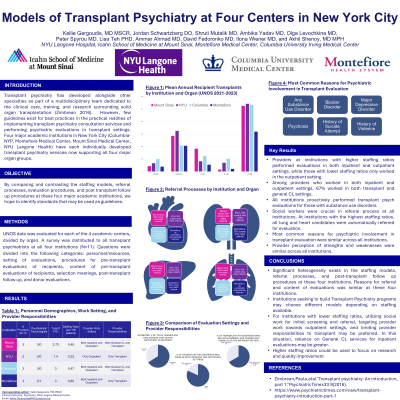
- KG
Kellie Gergoudis, MD
Attending Psychiatrist
NYU Langone Hospital
Whitestone, New York 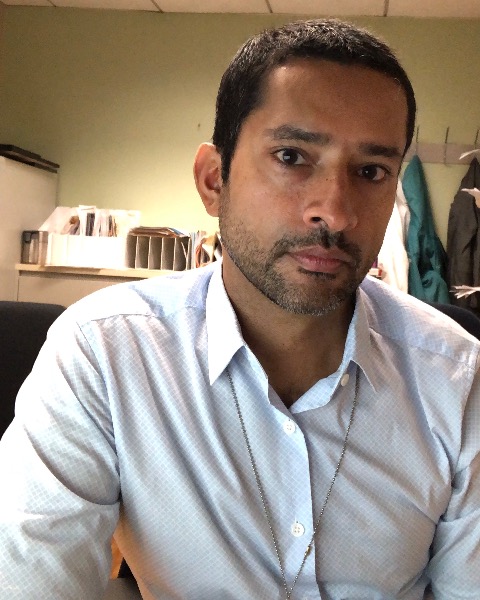
Akhil Shenoy, MD
Associate Professor, Director of Transplant Psychiatry
Columbia University
New York, New York- DF
David A. Fedoronko, MD
Assistant professor
Columbia University
Darien, Connecticut - IW
Ilona Wiener, MD
Attending Psychiatrist
Columbia University Irving Medical Center
New York, New York 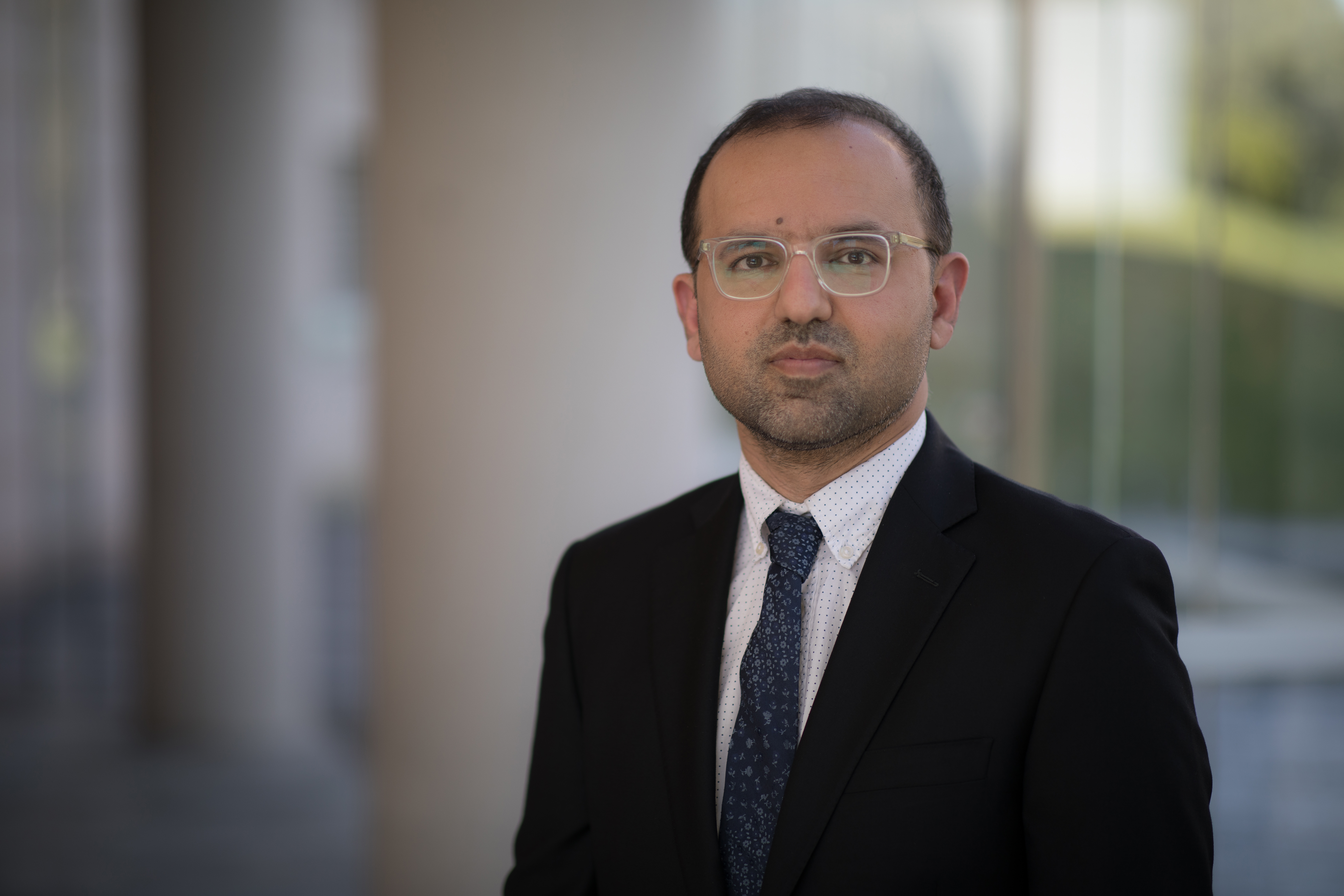
Ammar Ahmad, MD
Attending Psychiatrist
Montefiore Medical Center
Bronx, New York- PS
Peter Spyrou, MD
Transplant Psychiatrist
Montefiore
New York, New York 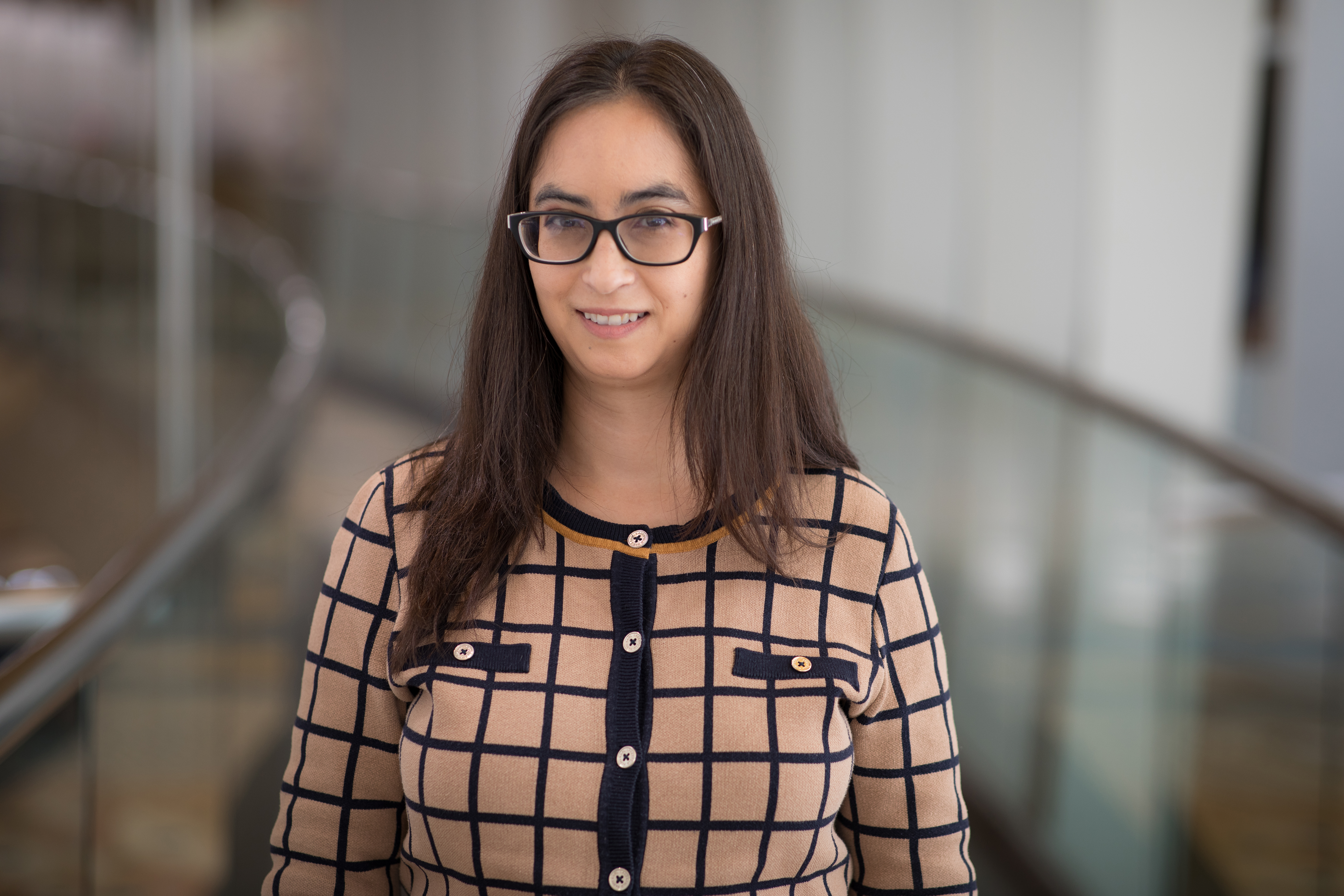
Lisa Teh, PhD
Director of Psychology in Transplant Psychiatry
Montefiore Medical Center
New York, New York.jpg)
Shruti P. Mutalik, MD
Transplant and Consultation Liaison Psychiatrist, Mount Sinai Hospital
Icahn School of Medicine, Mount Sinai
New York, New York- AY
Ambika Yadav, MD
Assistant Professor and Attending Psychiatrist
Mount Sinai Hospital
Brooklyn, New York 
Olga Levochkina, MD
Assistant Professor
Icahn School of Medicine at Mount Sinai
New York City, New York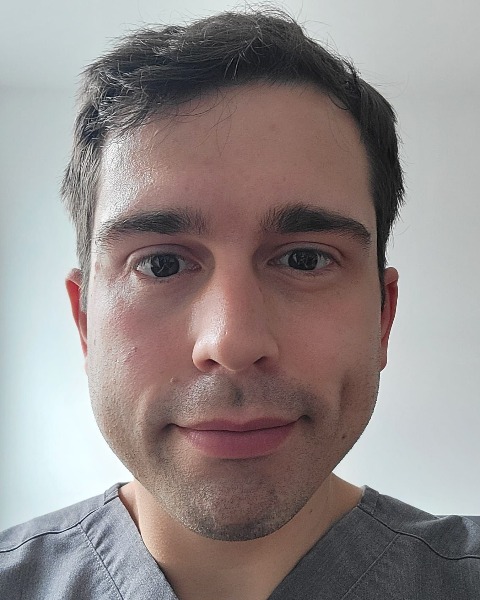
Jordan Schwartzberg, DO (he/him/his)
Attending Psychiatrist
NYU Langone
Ridgewood, New Jersey
Presenting Author(s)
Co-Author(s)
Background/Significance:
Transplant psychiatry has developed alongside other specialties as part of a multidisciplinary team dedicated to the clinical care, training, and research surrounding solid organ transplantation (Zimbrean 2016). However, few guidelines exist for best practices in the practical realities of implementing transplant psychiatry consultation services and performing psychiatric evaluations in transplant settings. Four major academic institutions in New York City (Columbia-NYP, Montefiore Medical Center, Mount Sinai Medical Center, NYU Langone Health) have each individually developed transplant psychiatry services now supporting all four major organ groups. By comparing and contrasting the staffing models, referral processes, evaluation procedures, and post transplant follow up procedures at these four major academic institutions, we hope to identify standards that may be used as guidelines.
Methods:
UNOS data was evaluated for each of the 4 academic centers, divided by organ. A survey was distributed to all transplant psychiatrists at all four institutions (N=10). Questions were divided into the following categories: setting of evaluations, personnel/resources, procedures for pre-transplant evaluations of recipients, content of pre-transplant evaluations of recipients, selection meetings, post-transplant follow up, and donor evaluations.
Results:
All four institutions perform heart, kidney, liver, and lung transplant evaluations. Between 2021-2023 the annual mean solid organ transplants by institution were comparable (Columbia=534, Montefiore=319, Mount Sinai=525 and NYU=542,) with kidney transplant being most common (53%). Staffing ratios revealed a median of 0.57 full-time equivalent (FTEs) for every 100 transplants with considerable variability by organ group (0.35—2.38).
10 Transplant Psychiatry providers responded to the survey (Columbia=3, Montefiore=3, Mount Sinai=3, NYU=1). All responders conducted evaluations both in an inpatient and outpatient setting with the majority of evaluations for heart, kidney, and lung being completed in the outpatient setting ( >70% for all four institutions). Most providers were responsible for both transplant and general consults. Referral processes varied most widely by institution and by organ. All institutions referred patients with substance use disorders, as well as primary psychiatric illnesses such as schizophrenia, bipolar disorder.
The majority of respondents identified social support, insight, motivation for treatment as key factors for a good candidate for transplant. Scales used during evaluation varied and included SIPAT, mini MOCA, PROMIS, Alcohol frequency measure, BRIEF, AUDIT-C, SLUMS, DAST-10, LDAT. All providers were responsible for post transplant patients at least sometimes and half of the providers (5/10) identified specific procedures for outpatient follow up post transplant. Length of time during which post-transplant patients were followed up varied from brief to indefinitely. Most of the providers (7/10) indicated that they performed donor evaluations. Four of seven respondents utilized the LDAT for donor evaluations.
Discussion:
Significant heterogeneity exists in the staffing models, referral processes, evaluation procedures, and post-transplant follow up procedures at these four transplant institutions. While the staff at all four program performed evaluations both inpatient and outpatient, the referral patterns and follow up procedures differed by hospital and organ group. All institutions proactively performed transplant psych evaluations for those with substance use disorders. Social workers were crucial in referral process at all institutions.
Zimbrean,Paula,et al. "Transplant psychiatry:An introduction,part 1." PsychiatricTimes33.9(2016).
Presentation Eligibility: Not previously published or presented
Diversity, Equity, and Inclusion: Our poster has diversity in institution. Each institution serves different populations. Our poster also has diversity in authors, both in ethnicity and in level of career. Our authors range from trainee/fellow, to early career, and also later career psychiatrists. Our authors include psychiatrists and also a psychologist. By understanding different policies, we hope to move towards greater equity across transplant programs. We also hope to provide guidance to those who may be hoping to create their own transplant psychiatry programs. This would decrease inequity in access to transplant psychiatry throughout the country.

